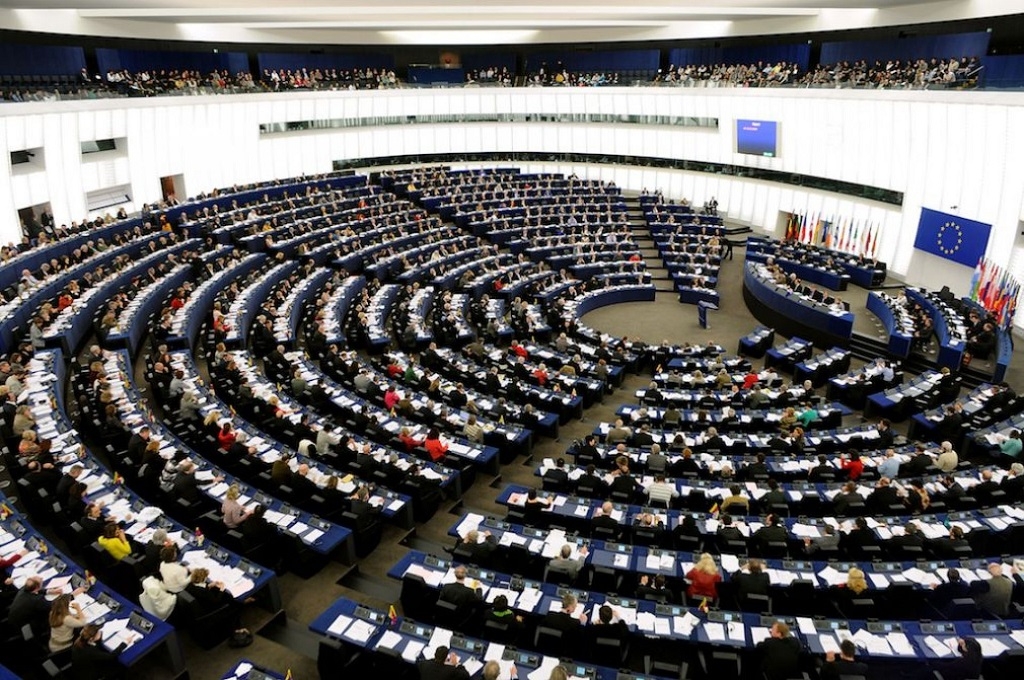Tonight we can dream. We have less than two months until the next European Parliamentary Elections. Less than a month until the election circus starts. A bit more until the search for the next Slovenian European Comissioner.
But today we won’t bother with details. The fact remains that people don’t care one bit for any of it. The first European election, when the people were still enamoured with the idea of European Union, noted the highest voter participation, an astonishing 28.35 percent of people. Five years later a few less, 28.33 percent of the voters took part in European Parliamentary Elections. In 2014 this percentage fell to 24.55 percent of voters.
The last thing that was legitimate about the EU was the referendum on joining NATO and EU. Voter participation was back in AD 2003 60 percent. Of that, 89.61 percent voted in favor of EU membership, and 66.02 percent of voters voted for joining NATO pact.
Considering the ideas that the Slovenian political heads entertain when it comes to referendums on which people decide, that would mean not one of the Slovenian Members of the European Parliament was legitimately elected. In retrospect, all the elections would have to be void according to the results. It would be interesting to see the reactions of these European chosen ones with their long faces when they hear the news there will be no leaving for Brussels, as the European Parliament elections in Slovenia failed due to insufficient voter turnout. How would the EMP candidates react in such scenario? That despite their victory in the elections they don’t get to go to Brussels because the voter turnout was too low. Because that is the reality of Slovenian citizens on every democratic election and referendum.
The situation we got to witness in the British Parliament for the last couple of weeks is the nightmare Slovenian voters got used to a long time ago. In the past two decades, Slovenian voters voted for the closure of shops on Sundays with the exception of ten working Sundays in a given year. Shops remain open for more than ten sundays per year. The voters turned down the proposal of granting the basic rights to the so-called “Erased”. Despite their decision, the Parliament recently not only granted them their rights, but on top of that even paid the damages. In 2008, voters confirmed the proposal on creation of 13 provinces with the intent of improving the usage of European Structural and Investment Funds. Provinces are nowhere to be seen, and the usage of European funds remains equally disastrous.
In 2012, the voters rejected the Family Code and sent a clear message they do not want to equalize homosexual relationships with the rights of married couples. That did not stop the ones in power to drag the voters on another referendum on the same topic, this time with a different name, in 2015. Again, the voters rejected the bill legalising same-sex marriage.
In 2015, 67.37 percent of the voters voted in favor of the bill that would change the law and allow declassification of the archives, and thus allow researchers to access them. Despite more than two third support in favor of changing the law, the referendum fell because of low voter turnout. In the 2018 Referendum on a law governing the Divača-Koper rail upgrade the voters rejected the law with 50.06 percent of the vote. Their will was ignored because of too low voter turnout.
We like to tell ourselves that we live in a democracy. More accurately, we could say, we live in a parliamentary democracy. But our democracy remains that only on paper, in practice we are long past the point where it became a farce. If it suits those in power, they will find a reason to turn down the will of the people. The people, filled with political apathy, are aware of that. While some other countries bother with phantom Russian hackers who “stole the elections”, we don’t have to fear that in Slovenia.
The main thing is that we have elections for the European Parliament that nobody cares about. The main thing is that we send eight MPs to Brussels, where they will have a good time for the next five years. We already know they won’t do a thing to benefit Slovenia. It would be more useful if we just had a random draw like the one in ancient democratic Athens. Eight randomly chosen electees probably couldn’t do greater damage or be of lesser use than the eight who will inevitably be elected. But tomorrow the same old story begins anew.
Ivan Šokić

